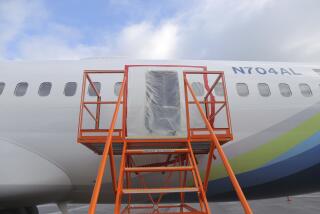Communication Gap Cited in Failed Launches
An independent panel blamed breakdowns in communication and faulty design assumptions for a string of rocket launch failures involving equipment made by Boeing Co., the world’s biggest aerospace company. Boeing’s Delta III exploded on its maiden launch 15 months ago, and a second attempt in May left the commercial satellite it was carrying in a useless orbit. A Boeing-built motor also failed in the Lockheed Martin Corp. launch of a Titan IV rocket for the Air Force in April. The Boeing-commissioned panel of experts said the engineers who design its rockets need to communicate better with those who build them, especially outside suppliers. At the same time, the panel said cost and schedule pressures weren’t to blame. Boeing said it’s taking steps to follow the review panel’s recommendations. The Seattle-based company believes that the second failure of the Delta III rocket was caused by a crack in the combustion chamber of an upper-stage engine made by United Technologies Corp.’s Pratt & Whitney division. The flaw could have been prevented if Pratt’s workers had better understood Boeing’s design instructions, Boeing spokesman Walt Rice said. Boeing shares rose $1.25 to close at $41.38 on the New York Stock Exchange.
More to Read
Inside the business of entertainment
The Wide Shot brings you news, analysis and insights on everything from streaming wars to production — and what it all means for the future.
You may occasionally receive promotional content from the Los Angeles Times.










